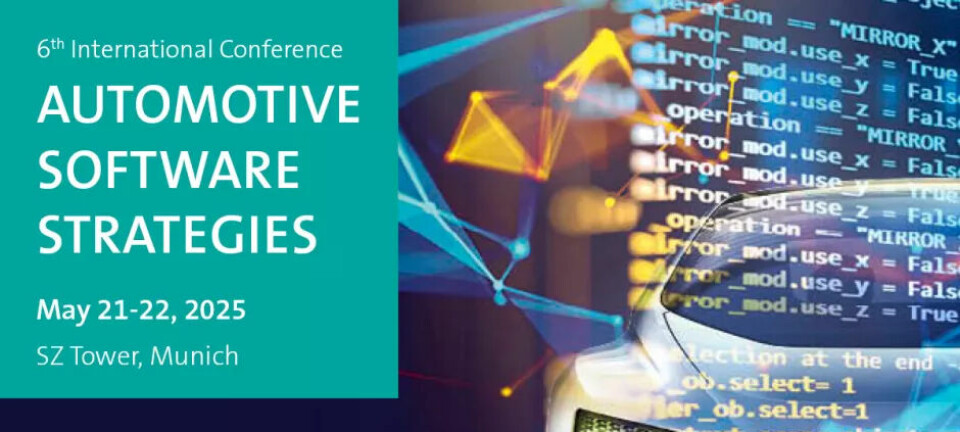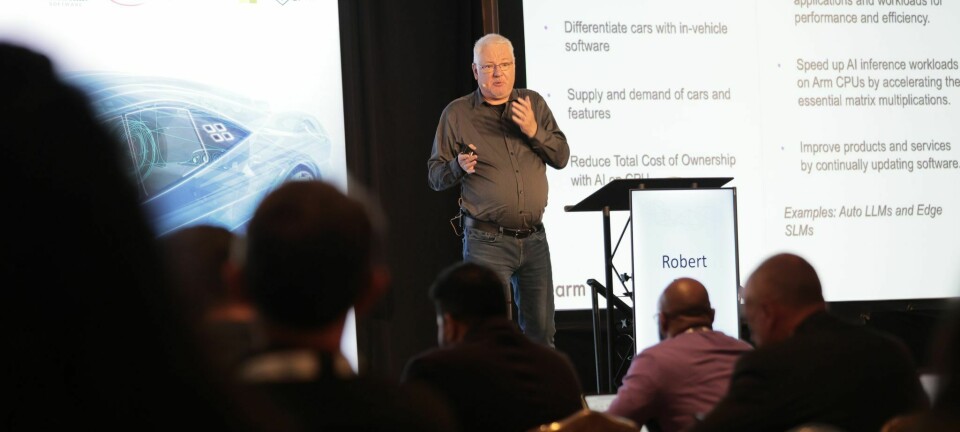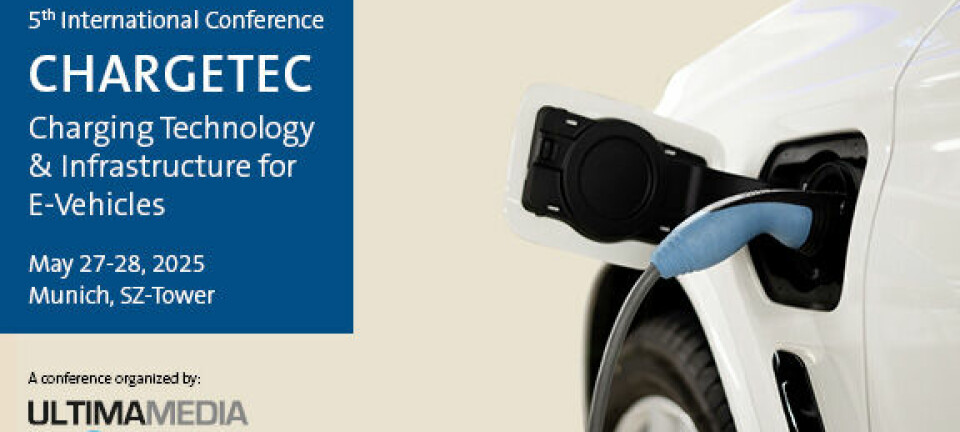Beyond GPS
Is intelligent positioning the next leap in vehicle navigation?
Brett Harrison (left) on stage in Detroit.
Ultima Media Germany
Global navigation satellite systems like GPS have powered modern mobility for decades—but their limitations are becoming increasingly evident. At the Automotive Computing Conference 2025 in Detroit, Brett Harrison, President & Co-Founder of Tern AI, presented a case for moving beyond conventional trilateration. His company’s approach: a robust, vehicle-integrated positioning system that does not rely on satellites at all.
Harrison opened his talk with enormous sums: 1.6 billion and 1.3 trillion. If GPS were to fail across the United States, it’s estimated the country would lose $1.6 billion per day. That’s not surprising, considering over $1.3 trillion in economic activity depends on positioning technologies.
Despite this critical role, GPS is inherently vulnerable. Its satellite-based signal can be blocked by tunnels, garages, dense cities—or simply poor reception. “The moment that signal is lost,” Harrison explained, “the technology stops.” In other words: navigation fails and safety systems stumble.
Sensor-First Paradigm
Harrison’s team has developed an independent drive positioning system. Instead of relying on external radio signals, the system uses existing in-vehicle sensors (IMUs, odometry, etc.) and any base map data the automaker already employs (HERE, Google, OSM, etc.).
A key feature: no additional hardware is required. The software layer runs directly on embedded vehicle systems or even mobile processors like a smartphone or Raspberry Pi. What makes it possible? A deep learning-based inference engine trained to recognise patterns in road curvature, vibrations, surface features, and motion.
“If AI can identify you from a billion faces, it can just as well identify a road from billions of road segments,” Harrison explained. The analogy may sound bold—but it underscores the system’s ability to “see” where the car is, even in GPS blackouts.
Cold Starts and Confidence Scores
According to Harrison, his company’s independent drive positioning system is able to initialise positioning from zero—a so-called cold start. In his demo, the vehicle begins with no prior knowledge of its location. As it drives and senses the road, the system continuously narrows down possibilities, until confidence in its position converges to 100%.
This works without GPS, Wi-Fi, or mobile signal. All processing happens locally in real time. According to Harrison, this opens up new possibilities for retrofitting older vehicles, operating in signal-poor regions, or navigating underground parking structures.
To illustrate the difference, he showed real-world footage from Lower Wacker Drive in Chicago—a notoriously complex multilayered urban tunnel where GPS routinely fails. In a three-way comparison, GPS dropped out completely, while Tern AI’s system maintained precise positioning throughout.
Further tests in large cities such as Dallas, Paris, Buenos Aires, and Sydney confirmed the robustness of the system. Whether in residential areas, garages, or urban canyons, it delivered lane-level accuracy, often down to individual parking spaces.
Government Validation and Global Demand
The potential of GPS-independent positioning hasn’t gone unnoticed. Following Executive Order 13905, which calls for reducing U.S. dependence on GPS, the Department of Transportation selected Harrison’s company as one of nine vendors worldwide to be evaluated in live tests.
Armed with only an iPhone and their software, the team outperformed competitors who needed extensive equipment setups. During snowy field trials, Tern AI’s system handled slippage, fishtailing, and other adversarial scenarios with high resilience.
According to Harrison, it is designed to be infotainment-friendly: it can run seamlessly with Apple Maps, Google Maps, Waze, or proprietary OEM navigation systems. “We don’t want users to change their habits. They should get the same experience—just more reliable,” said Harrison. Whether embedded directly in the dashboard, streamed from the cloud, or operated from a smartphone, Tern AI’s system offers a modular deployment model.
Is GPS the new legacy tech?
Despite its youth—the company has existed for just over 18 months—Tern AI’s system has drawn global interest. Harrison reported over 400 inbound inquiries in the past week alone, spanning private firms, public authorities, and big players like IBM and FedEx.
What was once considered impossible is quickly becoming a serious alternative to legacy GPS-based positioning. “We’re not trying to kill GPS,” Harrison clarified. “We’re just building a smarter backup—and in many cases, a better default.”
































